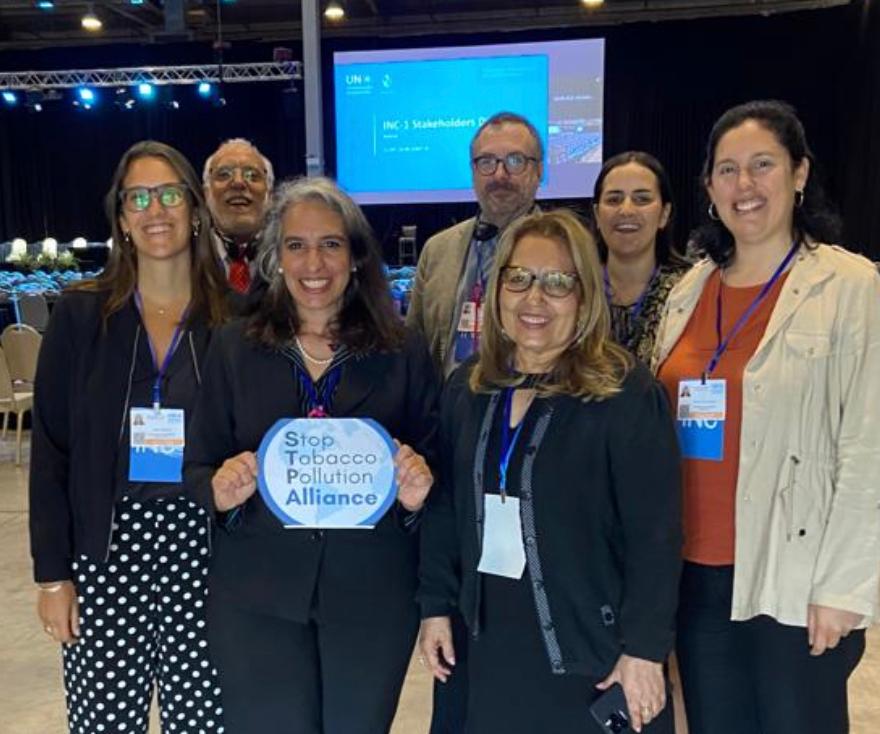ASH’s Policy Director Chris Bostic attended the first Intergovernmental Negotiating Conference (INC-1) of the United Nations treaty to end plastics pollution in Punta del Este, Uruguay from November 28 – December 3, 2022. He will shared updates and progress here for our community to stay engaged and informed.

December 5, 2022 – The first of five Intergovernmental Negotiating Committee (INC) meetings for the UN Plastics Pollution treaty is finished. The plan is to approve a final text roughly two years from now, which will be handed over to the UN Environmental Assembly for adoption. Then it will be opened for signatures and ratification by individual countries.
ASH engaged in these negotiations with one major goal – to ensure that cigarette filters and the toxic butts they become upon use are included in any list of banned single-use plastics. As part of that goal, we also pressed for the exclusion of the tobacco industry and other private actors that have an inherent conflict of interest from representation as “stakeholders.”
It was a great privilege to participate in these historic talks, not only on behalf of ASH but as a citizen of the world. The current production and waste of plastic products is unsustainable, and future generations are depending on us. We know that our experience with the Framework Convention on Tobacco Control (WHO FCTC) is valuable in this broader context.
When ASH and its anti-tobacco allies arrived in Uruguay, it was clear we had an uphill battle. Most negotiators, including among our allies in the environmental movement, were unaware of the magnitude of the filter problem. The word “filter” itself led some to assume that they were vital to keep cigarettes from being even more harmful. Tobacco was almost completely off the radar of government delegations.
By the end of the week, however, our advocacy was bearing fruit. Tobacco filters, the FCTC, and its Article 5.3 (excluding the tobacco industry from policy making) were brought up in open plenary several times by folks other than ASH, including by the UN High Commissioner on Human Rights in a written submission.
Tobacco filters were widely seen as the perfect example of a single-use plastic that ought to be banned – problematic, toxic and unnecessary.
There is still no draft treaty text. INC-1 was meant to set the stage, to adopt rules of procedure, and provide a broad outline of what an eventual treaty will include. In that, it succeeded. The secretariat for the negotiations will work to produce a rough draft as the basis for the next INC in May. ASH will be there.
Of course, it’s impossible to predict whether the plastics pollution treaty negotiations will bear fruit. There are many industries which stand to lose money by fixing the problem, and many governments who stand with them in putting short-term profit ahead of the long-term best interests of society. We have historical examples of multilateral fora that have boldly risen to the occasion, like the FCTC, and those that have not, like the climate change talks that have continued for 30 years with little impact.
We are fortunate to have dedicated allies in the fight, both among governments and non-governmental groups, in particular our new friends in the environmental movement. Standing together, there is reason for optimism that we can ban the #1 form of plastic litter in the world: cigarette filters.
Keep reading about ASH’s work on plastics pollution <Return to Day 4 Blog








